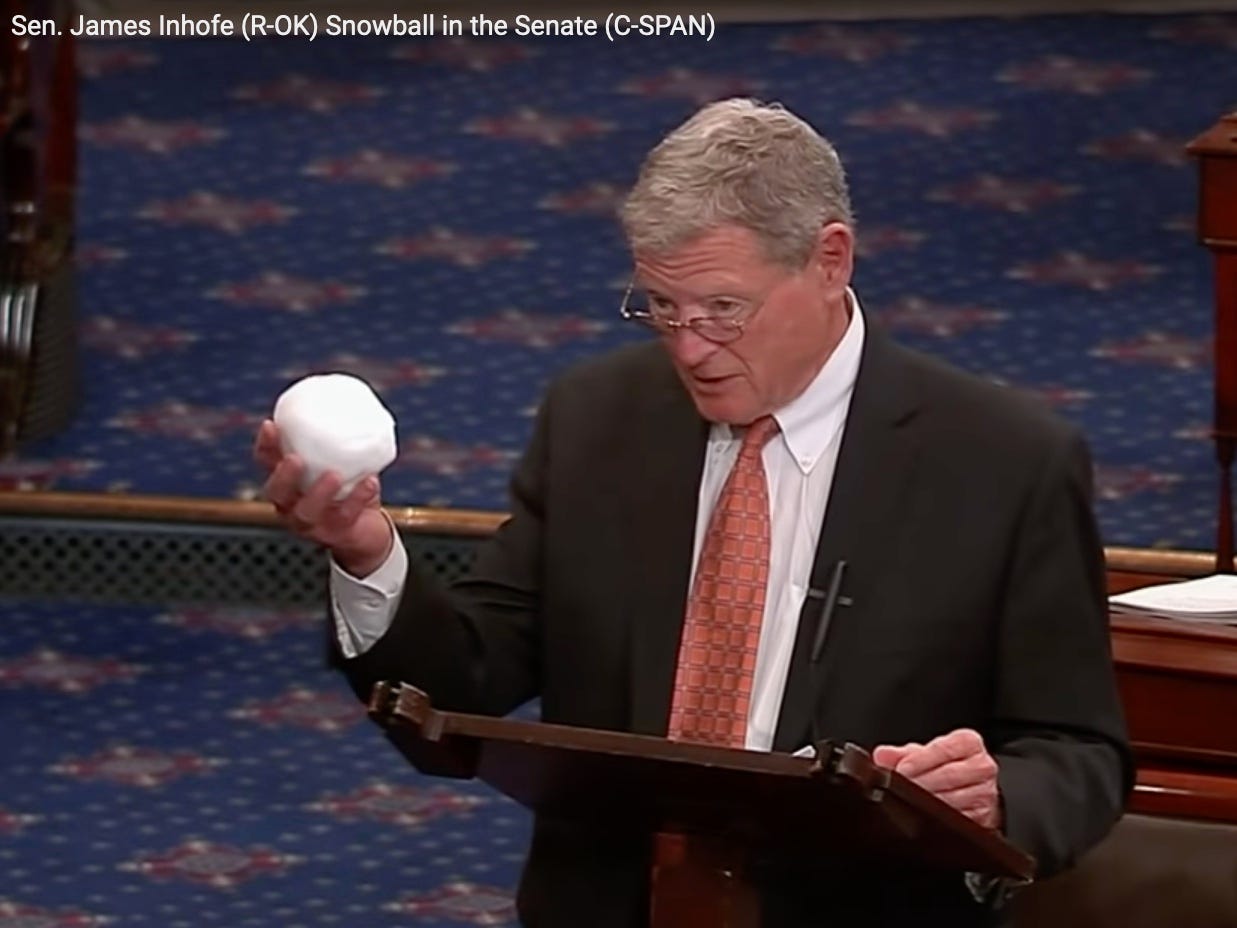In the heat of the days
If you’re not from South Carolina, or have friends or family there, you may not have heard of Bob Inglis. If so, I’d like to introduce him because Inglis—a former Republican congressman—is a remarkable man who sacrificed his political career trying to alert us, and his constituents, to the reality of global warming.
It happened thirteen years ago, in 2010.
Inglis was then a six-term representative from the reddest district (Greenville-Spartanburg) in the reddest state in America. A devoted conservative, his voting record had earned him a 100 percent rating from the Christian Coalition; 100 percent from National Right to Life; grade A with the NRA and zero with the Americans for Democratic Action, a liberal group. He was as conservative as you need to be to prevail as an incumbent in an ultra-conservative swath of the Palmetto state.
The beginning of his end came when he told a radio interviewer that based on his study of the science as a member of the Congressional Committee on Science & Technology he had come to accept that climate change was real, and that it was being caused by human activity.
It was more than an inconvenient truth. It was political heresy. He lost his next primary election (to a fellow Republican—a “Tea Party” candidate who did not accept that human-caused climate was real) by a whopping 42 percent of the vote. Among other things, his crushing rejection by Republican voters in his district was hailed as a major victory by interest groups funded by fossil fuel industries. In 2010 they were at the peak of their influence in fomenting public rejection of the science. They targeted Inglis for defeat and then held up his political scalp as a warning to other candidates and office holders. In 2012, Donald Trump declared climate change a “Chinese hoax” and was elected President four years later.
I was thinking of Inglis a couple days ago when I saw Philip Bump’s latest column for the Washington Post. The headline: “Climate denialism has burnt to a crisp.”
Bump hinged his column on the three days last week—July 3-5—that were successively measured, worldwide, to be the hottest three days on record. He also pointed to the remarkable fact that: “since the beginning of 2015, there have been precisely two days — two—on which the global temperature was below that day’s average temperature” during the two decades from 1979 to 2000.
It isn’t just that the science connecting man-made CO2 emissions to rising global temperatures keeps piling up. It’s also, as Bump noted, that nearly half of Americans polled now say they see the effects of climate change in their own lives.
“It is not the case that everyone has accepted the reality of the warming climate,” Bump writes. “But it is the case that the arguments once lazily thrown out to deny that it was occurring have mostly vanished.”
I think Bump is right.
I’ve noticed this as well—that in the midst of the reporting on the sizzling record-heat of July, and a slew of daily reporting on the deadly heat wave in the southern plains and floods in the midwest, etc.—there wasn’t a concerted effort to rebut the connection between these events and climate change.
It wasn’t that long ago that it was deemed witty and politically safe to joke about science-based forecasts of global warming. I’m thinking of the day in February 2015 when Sen. James Inhofe of Oklahoma (then chairman of the Senate Environment Committee) held up and then tossed a snowball in heart of the Senate chamber to mock the finding that the year 2014 had been the warmest on record.
Oklahoma Senator, and Chairman of the Senate’s Committee on the Environment, James Inhoffe’s with his snowball skit, mocking the notion of climate change, in February of 2015
It may not be so wise to be seen laughing at a stunt like that now. Heat prostration is a grim teacher. It’s as though the Earth is finally getting through to us—not through peer-reviewed journal articles—but by speaking harshly in peoples’ daily lives.
My political leanings are the opposite of Bob Inglis’s. But I so admire him for not just being true to what he was seeing in the science in 2010, but the conversation he was having with his children that led to his stand. He was conscientiously trying to act on behalf of their future.
But I’m also despondent by easy it was for shameless ideologues, like Myron Ebell and Competitive Enterprise Institute, to fool vast numbers of Americans with a cynical campaign to create just enough confusion about climate science to blunt popular support for action at a time when, frankly, time was crucial. It’s not that time isn’t crucial now, it’s just that by stalling over the past decade we’ve made it even harder (i.e. by withdrawing from the Paris Climate Agreement under the Trump Administration) to reign in rising CO2 and methane emissions.
There was a whole pile of other “news” on Friday, when Bump’s column came out, including some terrific stories about triumphs and tragedies that affect the lives of only a handful of people. But our failure to act collectively and effectively on the science of climate change is a story that affects everybody, including generations yet to be born. ( I subscribe to the Washington Post but was stunned to see that Bump’s column disappeared from the paper’s on-line homepage index within hours after it was posted, presumably displaced by glossier stories getting more clicks.)
I’ve written, before, about what I think of as the Rosetta Stone of journalism on the central, existential issue of our times. This would be the PBS Frontlines documentary in 2012, “Climate of Doubt,” that squarely and vividly exposed the highly effective, fossil fuel industry-funded campaign to mislead Americans about the science of climate change. The Frontlines reporting focused on the cynical bet from free market, pro-industry ideologues that you didn’t have to win the scientific debate, only make it so confusing that people would shrug instead of act, and continue to vote for incumbents, and new leaders like Trump, who dismissed the need to do anything about climate change.
The shadow of this “Cooler Heads” campaign’s effectiveness remains. About half Americans polled still think there is a split among scientists over whether human-caused climate change is real. In actuality there is nearly 100 percent agreement among authors of peer-reviewed climate science that human activity (i.e. fossil fuel pollution) is the driver for global warming. Of course, politics has only to do with what people think is true, not what actually is true.
When I read Bump’s column what came to mind was the recurring Saturday Night Live skit from the late 1970s featuring the late Gilda Ratner as “Emily Litella.” “Emily” is a hard-of hearing woman who asks for air time on “Weekend Update” to rebut the thrust of a recent news story. She is always worked up about something she misheard and delivers a passionate rebuttal. As she pounds the news desk she is always interrupted by the news host who explains to her that she just heard it wrong—i.e. when she demands “even more violins” on television, when the offending news story was about a move to restrict “violence” on television. The skit always ends with her looking into the camera and saying: “Oh. never mind.”
In the scrum and dust of our information world, I fear this is what will happen here: that we’ll be asked to agree that we were all confused about the science, and that it was only a misunderstanding or an accident that the climate change deniers parked their motor home in front of the fire hydrant—as our collective house burned down.
We cannot let that happen. There has to be a moment of reckoning for those who put corporate profits and ideology ahead of life on Earth.
—tjc




